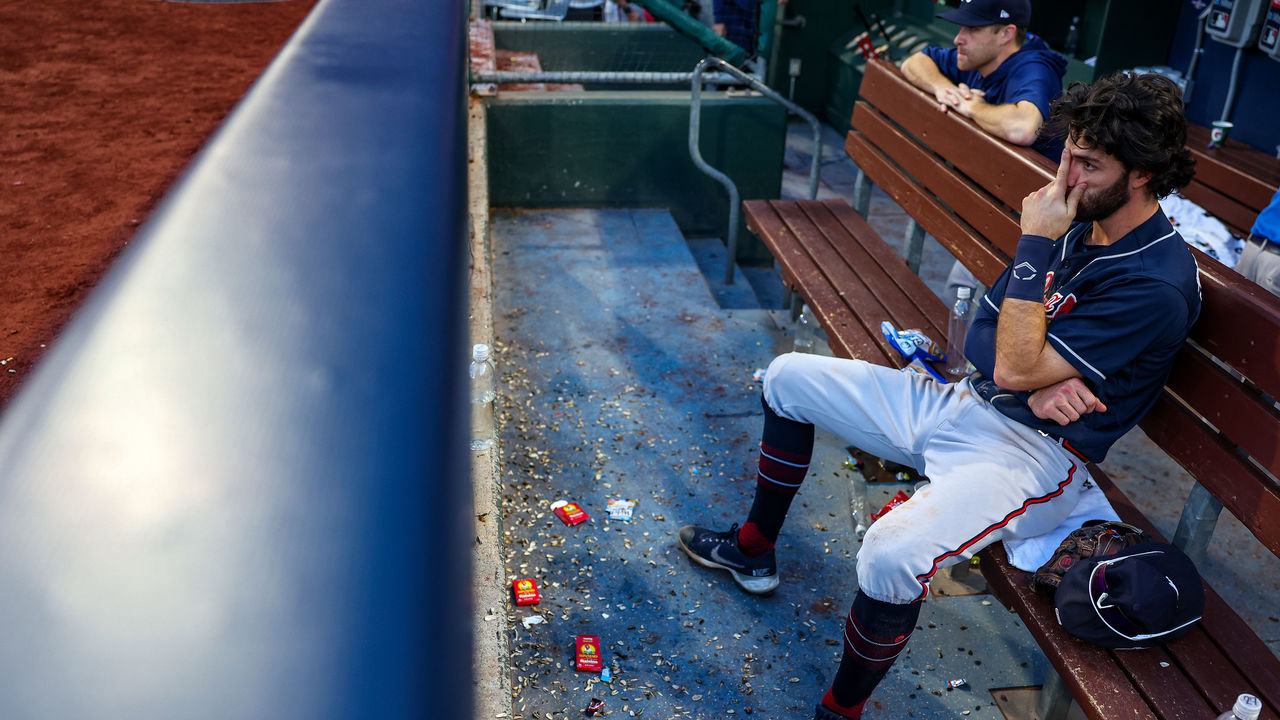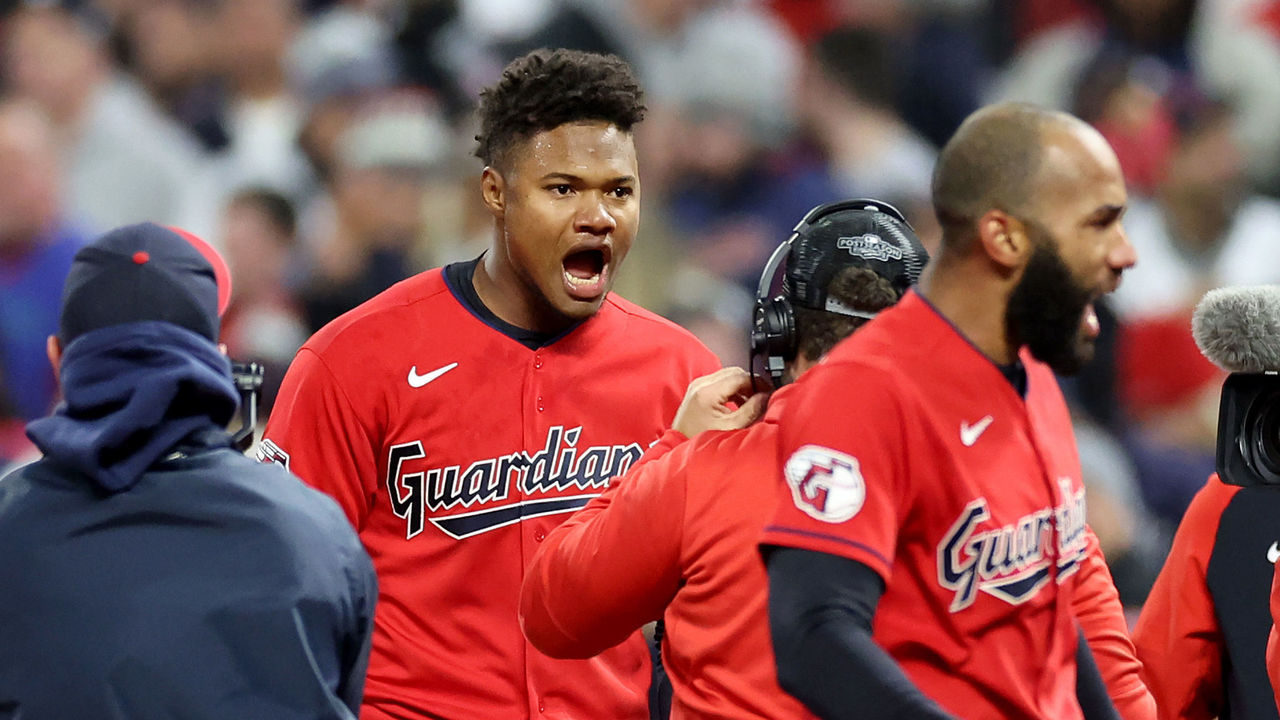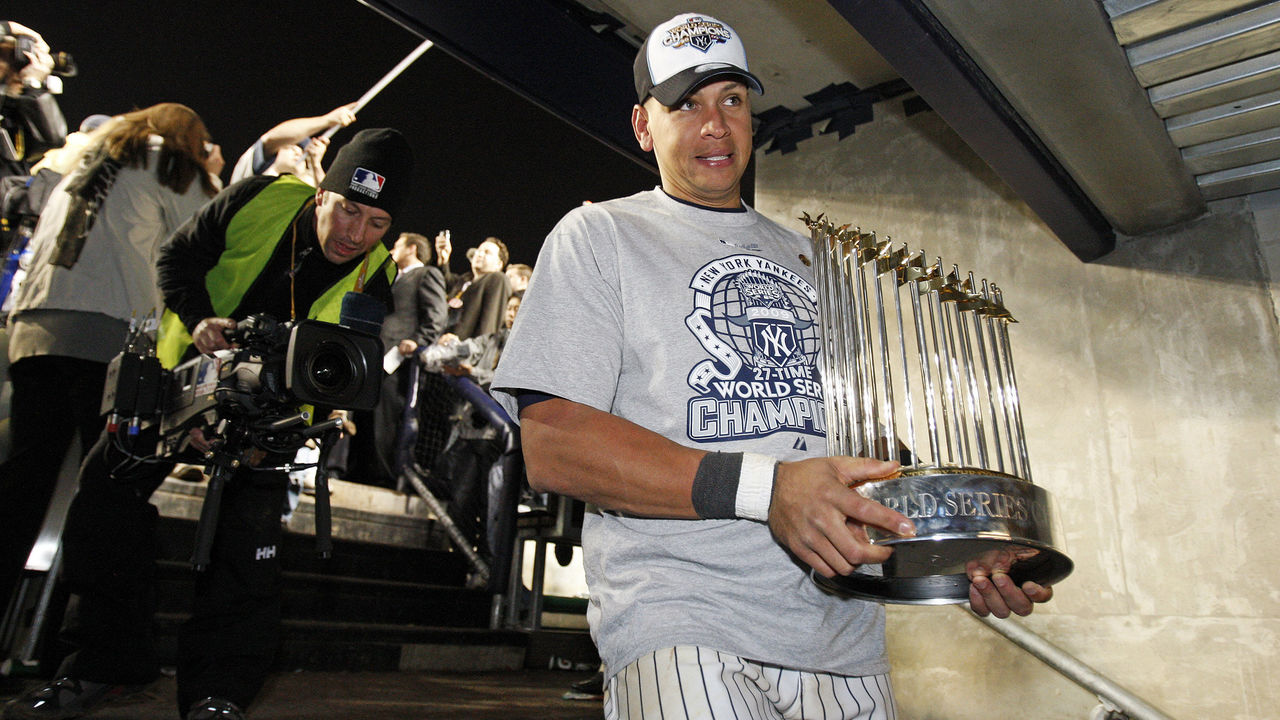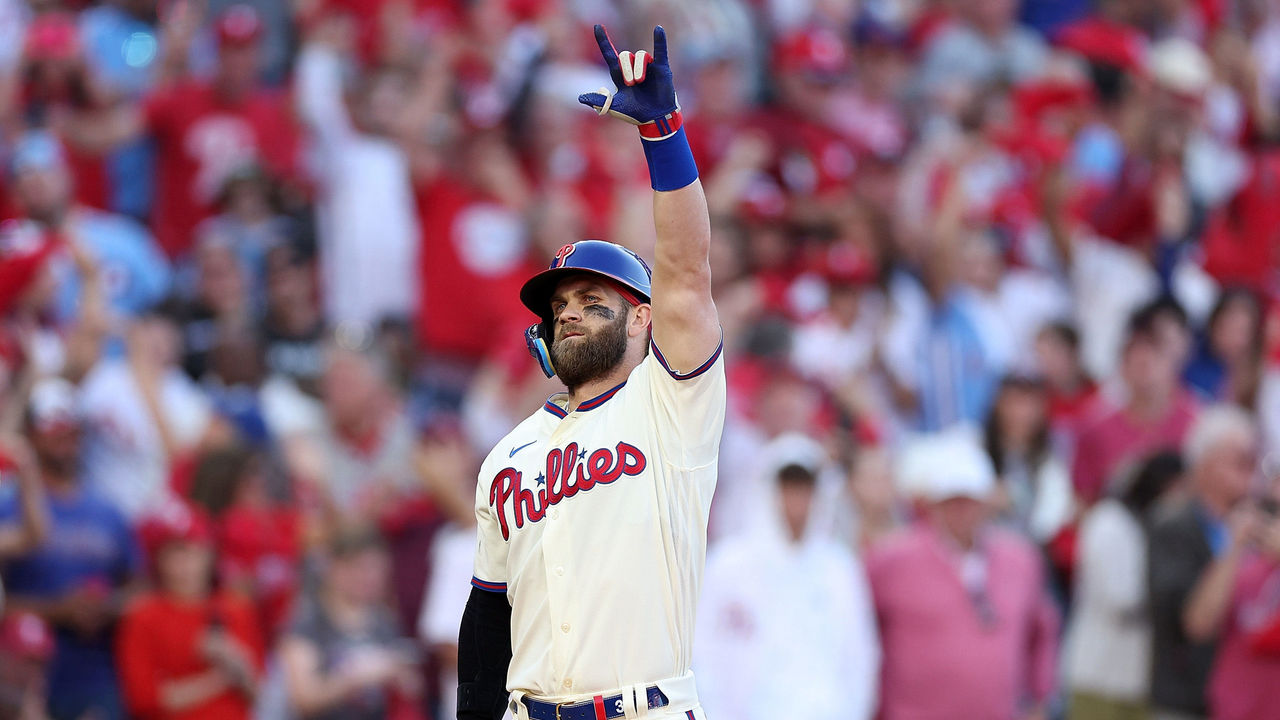Is baseball's playoff parity a bug or a feature? It depends who you ask
We saw more evidence over the weekend that the regular season and postseason are different beasts.
The 111-win Los Angeles Dodgers and 101-win Atlanta Braves each bowed out of the playoffs, while the Cleveland Guardians and 99-win New York Yankees will play a deciding Game 5 on Tuesday.
The Philadelphia Phillies - who held off the Milwaukee Brewers by a game for the newly added third wild-card spot - knocked off two division winners: the St. Louis Cardinals and Braves. The San Diego Padres advanced by defeating a Dodgers team that outpaced them by 22 games in the regular season. On Saturday, those two Game 4s (Braves-Phillies, Dodgers-Padres) along with Cleveland's ninth-inning comeback against the Yankees and Houston's 18-inning 1-0 win over Seattle generated a lot of buzz for the game.

After the upsets, many people - at least those teams' fans and some media outlets in large markets - complained that these short-series playoff failures were unfair because they diminished the resumes built over 162-game seasons.
The series loss especially stung in Los Angeles, where the paper of record, the L.A. Times, opined: "If there ever was a case for canceling the playoffs and awarding a championship to one team because it was so clearly better than all the others, the 2022 Los Angeles Dodgers would be it."
The 2001 Mariners, who won 116 games and lost in the ALDS, seconded the motion.
But is the small-sample randomness of October a bug in the system or a desirable feature?
I argued last week that regular-season play - and overall interest in the sport - would benefit from having more meaning and incentives tied to success from April to September. But that wasn't an anti-playoff argument. That was an argument for celebrating the regular season in a new way - or really an old one, like returning pennant-winner status to the team with the most regular-season wins, as it was until 1968.
There's nothing particularly wrong with the playoffs. They are one of the few features of the sport that levels the playing field. As the only major North American sport without some kind of cap-and-floor salary system to moderate team payrolls, it can be argued that the playoffs are baseball's primary parity driver.

While the correlation between regular-season payroll and wins is generally declining in recent years as the game trends younger, payroll still does have a relationship with on-field success year after year.
A correlation coefficient is a fancy math way of showing the strength of a relationship between two variables. A correlation of 1 shows a perfect positive direct relationship between variables, and a score of 0 means there is no linear relationship. The correlation coefficient between payroll and wins averaged 0.45 from 1998-2010, and fell to 0.32 from 2011-2022, according to data from BaseballCube.com.
Also consider that the gap between the spending of the top- and bottom-five payroll teams keeps expanding, even in the luxury tax era.
In 1995, the top-five payroll teams spent $2.40 for every $1 spent by the bottom five. In 2010, that grew to $3.30, and this year it ballooned to $4.90. Even if that spending isn't yielding more wins on the field efficiently, it's creating the perception of an unfair game among fans, especially those in small markets.
While homegrown cores are still key to every good team - the Guardians, Rays, and Orioles had winning records this season with bottom-five payrolls - hitting on an elite free agent is better than not having the ability to do so. Without wild cards, there would have been a lot of Dodgers-Astros World Series in recent years.
The postseason format is the way it is primarily because of TV dollars. It's created October parity, with 15 different World Series winners since the start of the wild-card era in 1995. Only five clubs have won multiple titles since 1995: the Yankees (five), Red Sox (four), Giants (three), Braves (two), Cardinals (two), and Marlins (two).

Regular-season success ought to be recognized in a more meaningful manner, but that's a separate issue from what happens in October. Any postseason format is going to create a different game and challenge the six-month sample of work before it. MLB has two different seasons and it ought to find a way to embrace each: what happens from April through September, and what happened Saturday.
Are any underdogs for real?
Saturday was one of baseball's most memorable days in recent memory.
We were reminded that 18-inning games can be a lot of fun - especially if they're in October, carry high stakes, and fans are watching and following along together on social media. (For practical reasons related to pitching-staff management, the ghost runner extra-inning rule still makes a lot of sense for the regular season. But for the postseason, Saturday's game was good theatre.)
Earlier in the day, the baseball world watched the Phillies complete one upset. The Padres stunned L.A. late Saturday, while the Guardians pushed the Yankees to the brink thanks to rookie Oscar Gonzalez's third game-winning hit in his first three career playoff games. The overlapping games and action seemed to add to the chaos and interest on social media.
And while they're certainly great stories, are any of MLB's 2022 Cinderella clubs built to advance deep into October?
The Phillies stand out; they appear built for October.

They have plenty of power, ranking sixth in the majors in homers - and that was without a full season from Bryce Harper. Remember: A greater share of runs are scored via the home run in the postseason, when hits and scoring are at a premium against tightened pitcher usage.
But the Phillies' greatest October advantage resides at the top of their rotation.
Aaron Nola and Zack Wheeler both had excellent seasons, combining for 10.4 WAR and accounting for 60% of Phillies starters' production. The Phillies' No. 4 and No. 5 starter options were problematic all season and their exposure can now be limited.
Nola and Wheeler have combined for 25 of the club's 53 postseason innings to date, 47.2%, compared to 25% of the club's regular-season innings. That's a big advantage.
If the duo can keep pitching well and continue to absorb that sort of workload, the Phillies figure to be difficult to deal with, as they've shown through the first two rounds. The NLCS against the Padres begins Tuesday, and Wheeler and Nola are the likely starters in the first two games.
Nola and Wheeler have long been very good major-league pitchers, but Nola took his game to an even greater level this year, finishing first among all major-league pitchers in WAR (6.3).
Pitchers typically lose velocity with age. Fastball velocity, on average, starts decreasing slowly when pitchers hit their mid-20s. But Nola's swing-and-miss rates and his velocity have remained steady as he approaches 30, and he's made huge command gains at the same time.

It's not that Nola ever had poor command, but he cut his walks per nine innings to 1.27 this year, which is the second-best mark among qualified starters after Corey Kluber. Nola's improved that rate three consecutive years from a peak of 3.56 walks per nine in 2019.
He also added another pitch, a cutter, that he can throw in the zone. He's throwing first-pitch strikes at a career-high rate (70%), and he already was one of baseball's few pitchers who consistently work deep into games. He and Yankees ace Gerrit Cole are the only two pitchers with three 200-inning seasons in the last five years.
Nola continues to baffle hitters in the zone and out of it with his excellent curveball and sublime changeup.
In his first two postseason starts, Nola's 2-0 and yet to allow a run. He could be a player who elevates his club this October, a Phillies team built for the month.
Travis Sawchik is theScore's senior baseball writer.